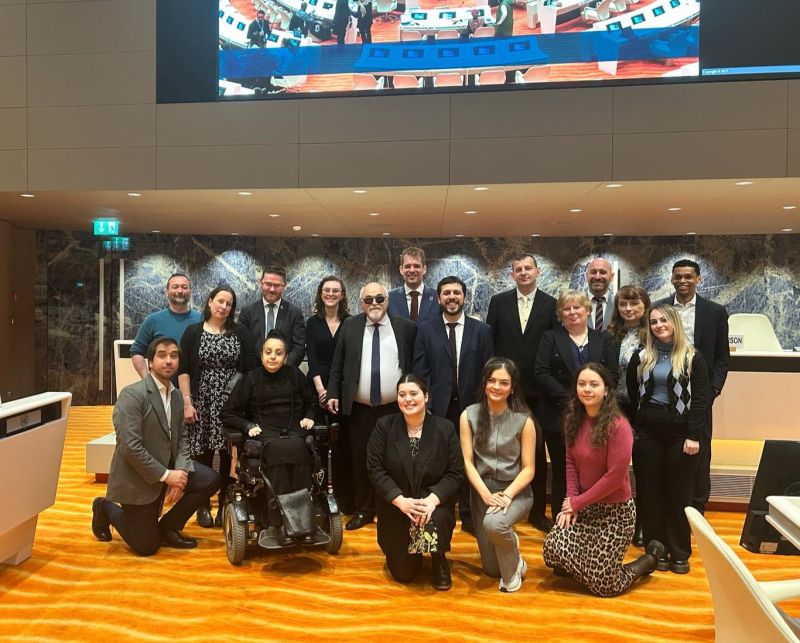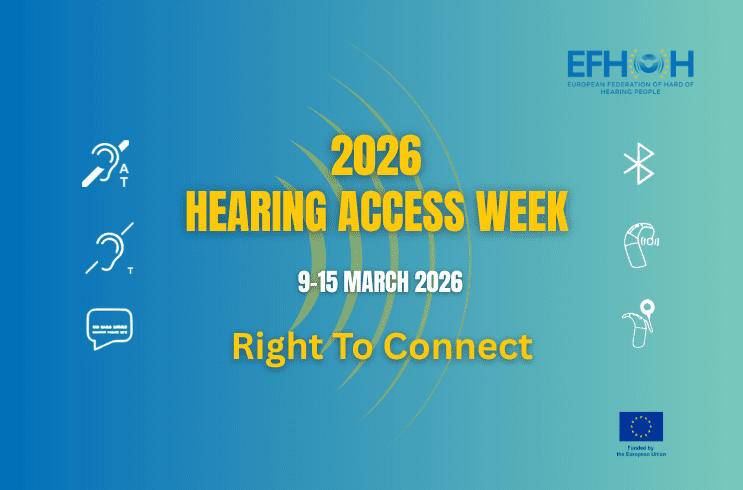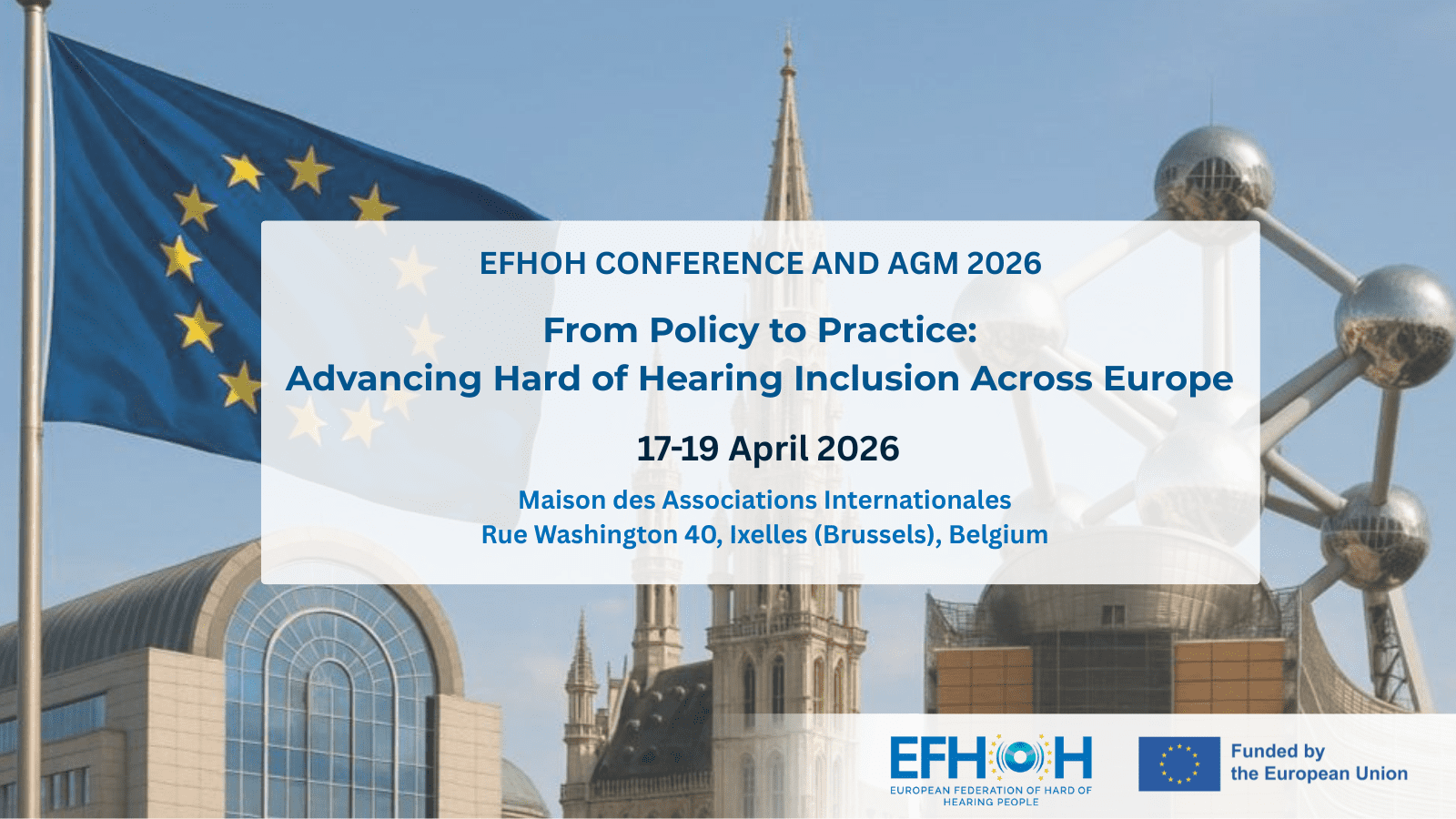
EFHOH’s Alternative Report, submitted to UN experts ahead of the EU’s second review under the UN Convention on the Rights of Persons with Disabilities (CRPD), highlights critical gaps in the EU’s implementation of its commitments to hard of hearing individuals.
On March 10, 2025, EFHOH representation, Lidia Best and Lavinia Rotundi, attended the European Union’s review before the UN Committee on the Rights of Persons with Disabilities (CRPD) at the UN Headquarters in Geneva, and followed the session online on March 11. EFHOH actively engaged in discussions with CRPD Committee Members and delivered a statement urging the EU to take stronger action to ensure accessibility, equal participation, and rights protection for hard of hearing people.
Following the dialogue between the EU and CRPD Committee which occurred on 11-12 March, we reinforced that hard of hearing individuals mostly rely on hearing aids, cochlear implants, captioning and assistive technologies to communicate. Yet the EU institutions still do not include their communication needs, leading to gaps in accessibility policies.
Our Alternative Report outlines major shortcomings in the EU’s compliance with CRPD obligations:
- Hearing loss is not consistently recognized across the EU, leading to disparities in access to hearing care and rehabilitation. Universal reimbursement and quality of hearing care guidelines should be implemented under EU-wide healthcare policies.
- There is a lack of accessibility in healthcare, emergency services, and public information, with limited real-time captioning, written communication, and assistive listening systems. Enforcing accessibility requirements under the European Accessibility Act (EAA) would guarantee better communication support.
- The enforcement of workplace protections is weak, with insufficient monitoring of reasonable accommodation obligations. Strengthening compliance with the Employment Equality Directive and reconsidering withdrawal from the Equal Treatment Directive would allow hard of hearing people to equally benefit from job opportunities.
- The European Disability Card does not explicitly recognize hearing loss, which limits freedom of movement across the Member States and access to services across Member States. Expanding its scope would ensure equal access to essential services and free movement for hard of hearing people across Member States.
- Gender-based violence services remain largely inaccessible for hard of hearing women due to communication barriers in legal and support systems. The Directive on Combating Violence Against Women and Domestic Violence should require Member States to provide accessible reporting, aligning with the Istanbul Convention.
- Enforcement of accessibility laws in media, public spaces, and cultural life are inadequate, despite existing EU regulations. Strengthening AVMSD monitoring and consulting national hard of hearing organizations during implementation at the national level would ensure full subtitling and assistive listening systems.
- There are gaps in disability data collection, which fail to reflect the realities of hard of hearing individuals in employment, healthcare, and social participation. Requiring Eurostat and other EU data agencies to include disaggregated data on hearing loss would support targeted policies.
Apart from the areas covered in the Alternative Report, EFHOH highlights additional priorities requiring stronger EU action:
- The assurance of captioning, hearing loops, and assistive listening technologies in all public settings to enable equal decision-making for hard of hearing people.
- The strengthening of national monitoring frameworks, through direct consultation with national hard of hearing organizations, for the correct transposition of EU policies into national legislation.
As the EU enters the second half of its European Disability Strategy 2021-2030, stronger action is needed to close accessibility gaps and uphold CRPD commitments.
EFHOH calls on the EU to strengthen enforcement mechanisms, harmonize disability recognition through the European Disability Card and ensure the full inclusion of hard of hearing individuals in all areas of life.
Check our full Alternative Report for a comprehensive assessment of hard of hearing rights in the EU here: link to report.




